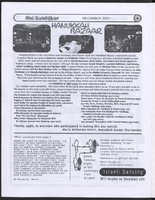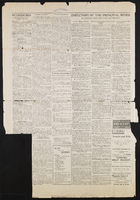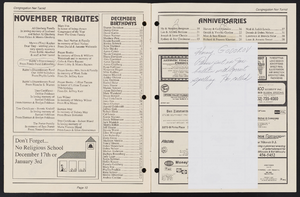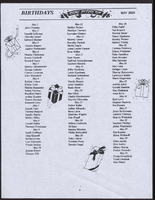Search the Special Collections and Archives Portal
Search Results
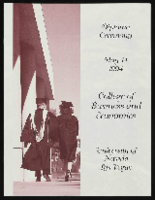
University of Nevada, Las Vegas (UNLV) College of Business and Economics Diploma Ceremony program
Date
Archival Collection
Description
Commencement program from University of Nevada, Las Vegas Commencement Programs and Graduation Lists (UA-00115).
Text

Meeting minutes for Consolidated Student Senate, University of Nevada, Las Vegas, September 06, 1983
Date
Archival Collection
Description
Text
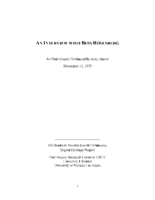
Transcript of interview with Bess Rosenberg by Jerry Masini, November 12, 1975
Date
Archival Collection
Description
Interview with Bess Rosenberg by Jerry Masini on November 12, 1975. In this interview, Rosenberg describes coming to Las Vegas in 1942, and the desert landscape. She gives an in-depth recollection of the first atomic test, and talks about different weather and the seasons in Las Vegas. Rosenberg describes several clubs and hotels around downtown and the recreation at Lake Mead and Mount Charleston.
Text

Bluebell Girls: scrapbook of newspaper clippings and photographs
Date
Archival Collection
Description
From the Margaret Kelly Collection on the Bluebell Girls, MS-00604. The scrapbook includes newspaper clippings about the Bluebell Girls, Folies-Bergère, and dancer Catherine Dunne's experiences in Milan, Italy at the start of World War II.
Mixed Content

Meeting minutes for Consolidated Student Senate University of Nevada, Las Vegas, April 11, 1985
Date
Archival Collection
Description
Text

